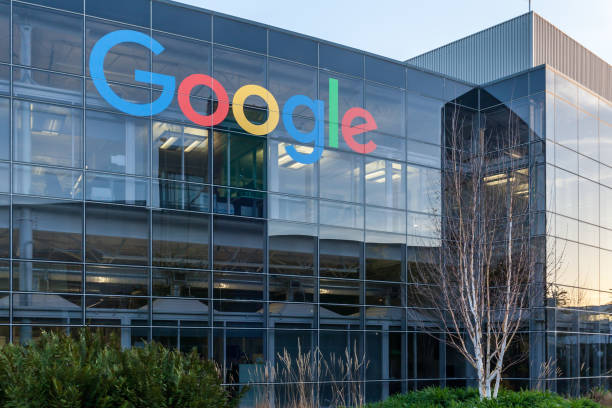Pay-per-click (PPC) advertising is one of the most effective ways to drive traffic and conversions. However, if not managed wisely, PPC can quickly become expensive and reduce your return on investment (ROI). For businesses looking to improve their results without overspending, focusing on cost management is essential. This guide provides actionable strategies to help you maximize ROI on PPC campaigns while keeping costs in check.
Understanding the Basics of PPC Advertising
Before jumping into cost management, it is important to understand what PPC is and how it works. PPC is an online advertising model where advertisers pay a fee each time their ad is clicked. Common platforms include Google Ads, Bing Ads, and social media networks.
PPC campaigns rely on targeted keywords, audience segments, and bids to compete for ad placement. If managed correctly, PPC can help businesses achieve measurable goals such as increasing website traffic, generating leads, and driving sales.
However, poor planning or execution can lead to wasted spend, making it essential to adopt strategies that focus on cost-efficiency.
The Importance of ROI in PPC Campaigns
Why does ROI matter in PPC? It is simple: without positive returns, your advertising dollars are wasted. ROI measures the profitability of your campaign by comparing the revenue generated to the costs incurred.
Here is the formula:
ROI (%) = (Revenue – Cost) ÷ Cost × 100
If your ROI is low, it is a sign that your campaign is not performing as expected, and adjustments are needed to improve efficiency.
1. Setting Clear Goals for Your PPC Campaign
Why Goals Matter
Defining clear goals is the foundation of a successful PPC strategy. Without specific objectives, you may end up targeting the wrong audience or overspending on irrelevant clicks.
Steps to Define Goals
- Identify Key Metrics: Decide whether your focus is on conversions, clicks, or impressions.
- Set Realistic Targets: For instance, aim to reduce cost-per-click (CPC) by 10% within three months.
- Align with Business Objectives: Make sure your goals contribute to broader company targets.
When your goals are well-defined, every aspect of your campaign can be optimized to achieve those outcomes.
2. Conducting Comprehensive Keyword Research
Focus on High-Value Keywords
Not all keywords are created equal. Some drive significant conversions, while others generate clicks that do not lead to sales.
Steps to Find the Right Keywords
- Use tools like Google Keyword Planner to identify keywords with high search intent.
- Prioritize long-tail keywords, which are often less competitive and cheaper.
- Avoid overly broad terms that attract unqualified traffic.
Refining your keyword list ensures you spend money only on terms that deliver value.
3. Implementing Negative Keywords
What Are Negative Keywords?
Negative keywords are terms you exclude from your campaigns to prevent your ads from showing for irrelevant searches.
How They Save Money
For example, if you sell premium shoes, adding “free” as a negative keyword stops your ad from appearing for “free shoes.” This eliminates wasteful clicks.
Regularly review your search terms report to identify and add new negative keywords.

4. Fine-Tuning Your Target Audience: PPC
Why Targeting Matters
Reaching the right audience is critical for maximizing ROI. Ads shown to irrelevant users not only waste money but also reduce your overall conversion rate.
Steps to Improve Targeting
- Use demographic filters to narrow down your audience.
- Segment by location to focus on high-performing regions.
- Leverage remarketing to re-engage users who previously interacted with your brand.
Precise targeting ensures your ad spend is used effectively.
5. Adjusting Bidding Strategies: PPC
Bidding Basics
Your bid determines how much you are willing to pay per click, influencing your ad placement and visibility.
Tips for Smart Bidding
- Start with manual bidding to gain control over costs.
- Experiment with enhanced CPC, which adjusts bids for clicks likely to convert.
- Monitor performance metrics and adjust bids for underperforming keywords.
Balancing your bids is key to maintaining profitability.
6. Writing Compelling Ad Copy
How Ad Copy Impacts ROI
Even the best targeting can fail if your ad copy does not resonate with users. The goal is to create persuasive content that drives clicks and conversions.
Tips for Better Ad Copy
- Highlight benefits, not just features.
- Include a strong call-to-action (CTA).
- Use emotional triggers to connect with the audience.
A well-written ad can improve click-through rates (CTR) and reduce CPC over time.
7. Optimizing Landing Pages for Conversions: PPC
Why Landing Pages Matter
When users click your ad, they expect to find relevant information. If your landing page does not deliver, they will leave without converting.
Key Elements of a High-Converting Landing Page
- Clear headlines that match the ad copy.
- Simple forms to capture leads.
- Fast loading speed and mobile-friendly design.
An effective landing page keeps users engaged and increases your chances of a successful conversion.

8. Monitoring Campaign Performance Regularly: PPC
The Role of Analytics
Tracking performance is essential for identifying areas of improvement. Analytics tools help measure metrics such as CTR, conversion rate, and ROI.
Steps to Monitor Effectively
- Schedule weekly performance reviews.
- Compare metrics against your goals.
- Identify patterns or anomalies in user behavior.
Consistent monitoring allows you to refine your strategy for better results.
9. Testing and Experimentation
The Value of A/B Testing: PPC
Running A/B tests helps you discover what works best for your audience. From ad copy to landing page design, testing different elements can lead to significant improvements.
What to Test
- Headlines and CTAs.
- Visual elements, like images or videos.
- Targeting options, such as demographics or locations.
Small changes can make a big difference in PPC performance.
10. Keeping an Eye on Your Budget
How Budgeting Affects ROI: PPC
Overspending can drain your advertising funds without producing meaningful results.
Budget Management Tips
- Set daily limits to control spend.
- Allocate more budget to high-performing campaigns.
- Pause underperforming ads to focus on those that deliver results.
Sticking to a budget ensures every dollar contributes to your goals.
Conclusion: PPC
Managing PPC costs is not just about cutting expenses; it is about spending smarter. By setting clear goals, refining your keyword strategy, and continually monitoring performance, you can improve your ROI and make the most of your ad budget. Whether you are new to PPC or looking to refine your current strategy, these cost management techniques can help you achieve better outcomes without breaking the bank.








